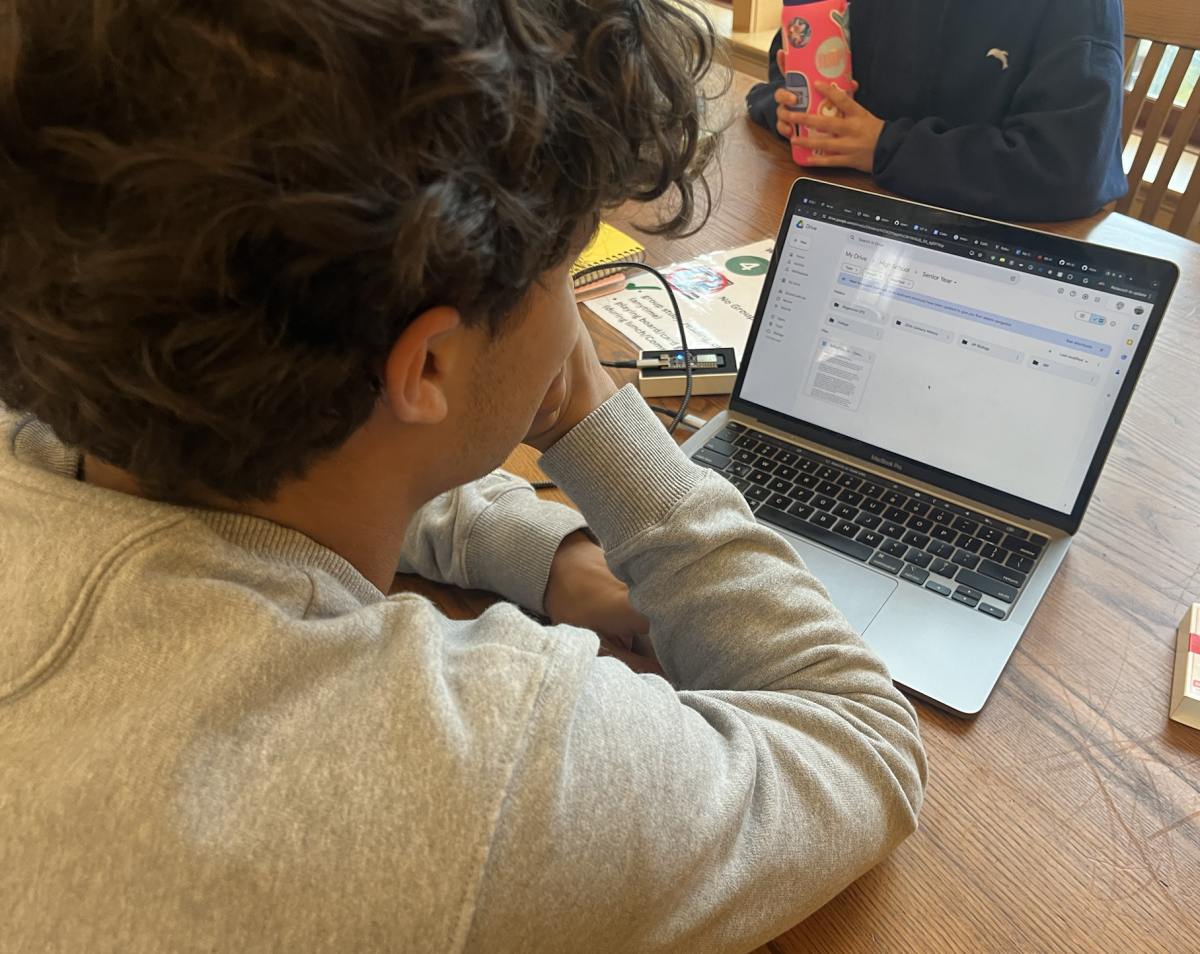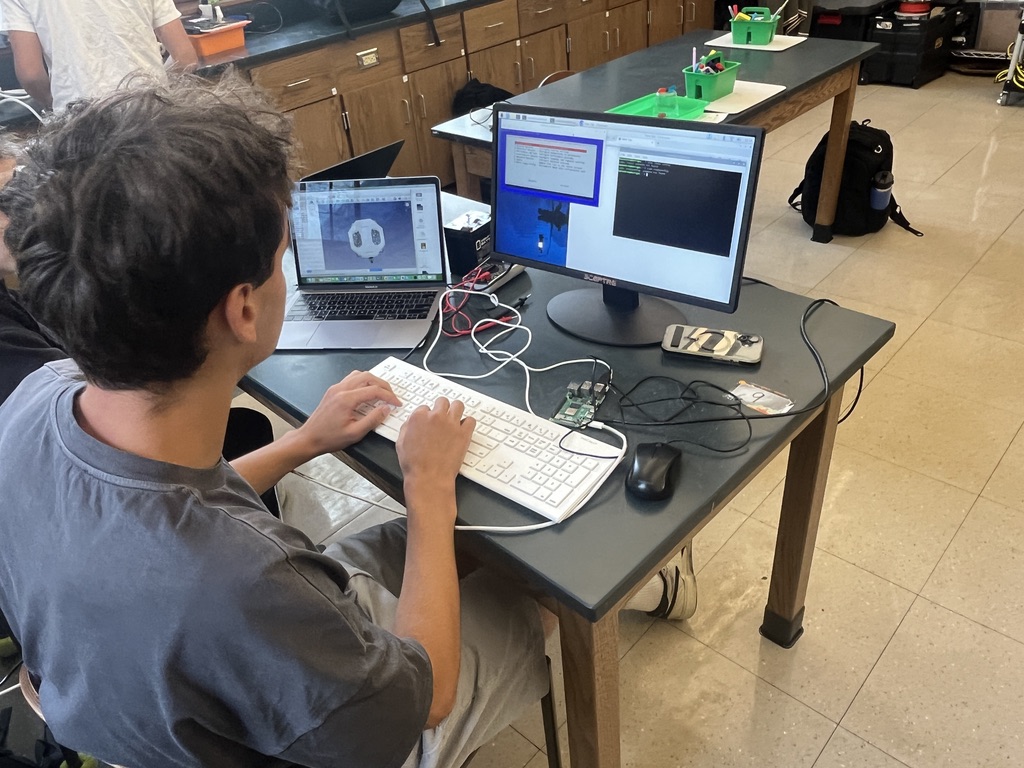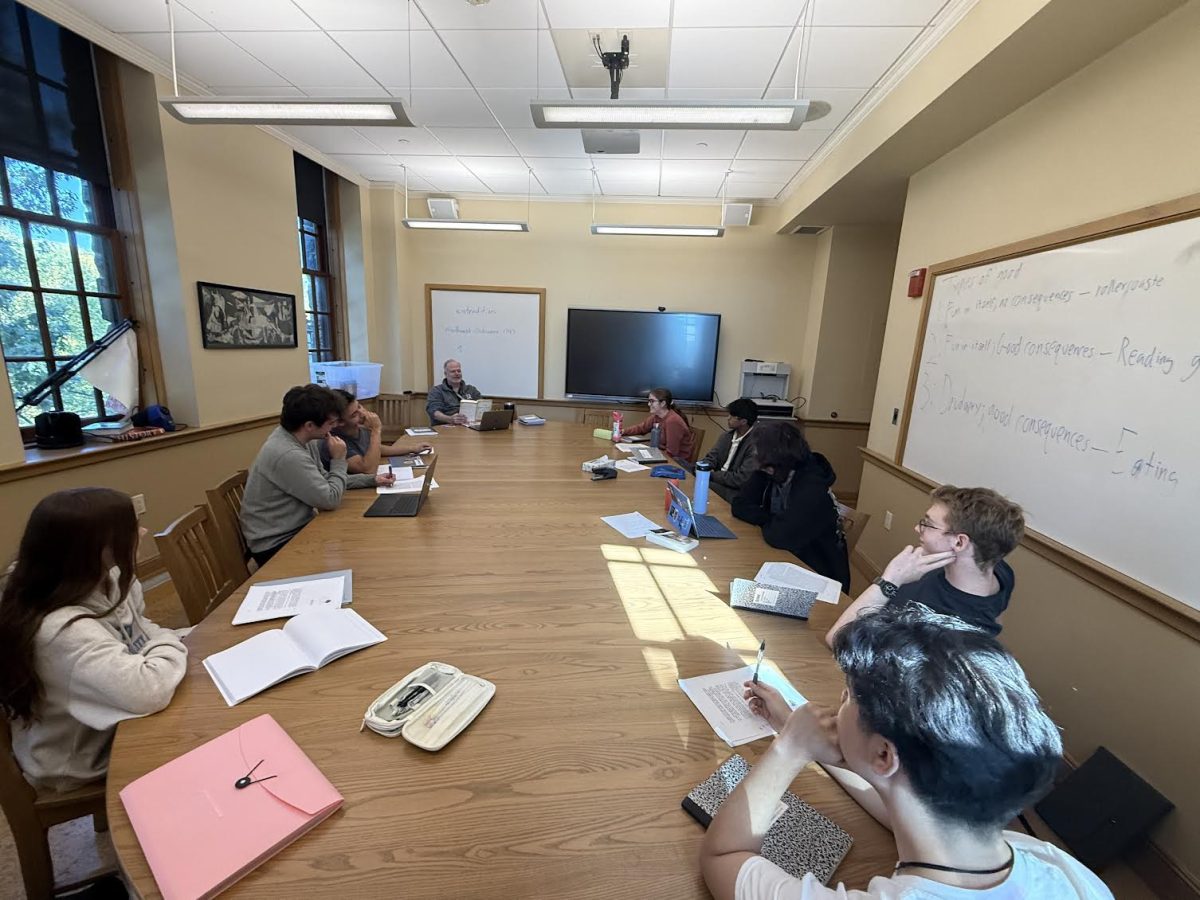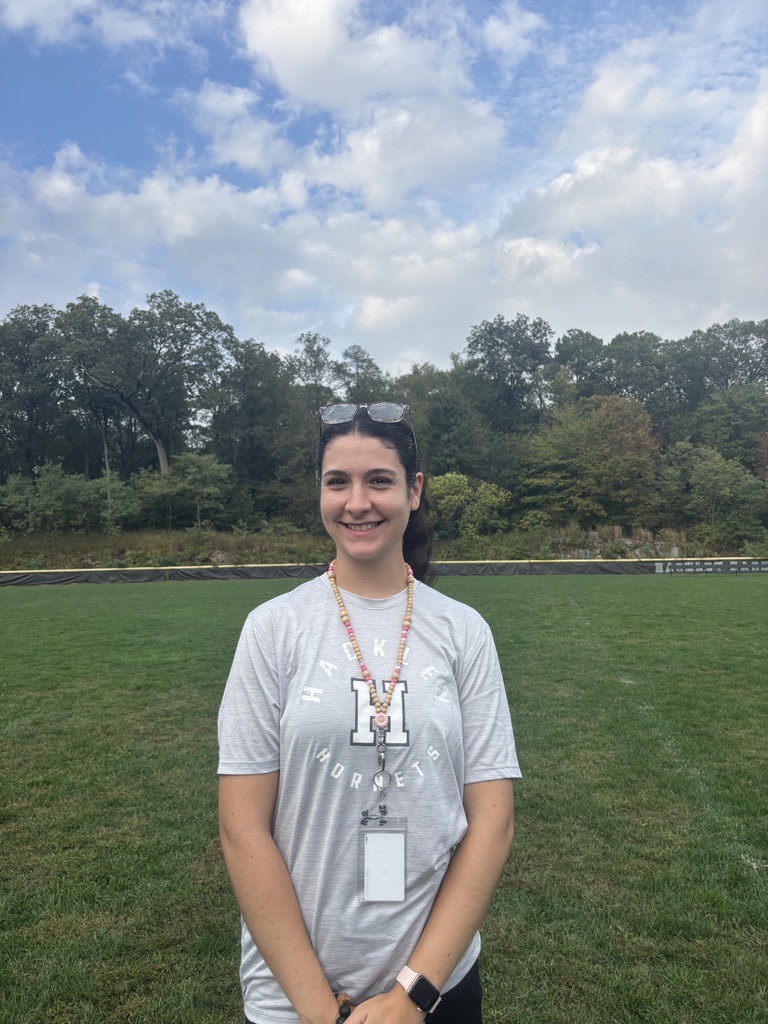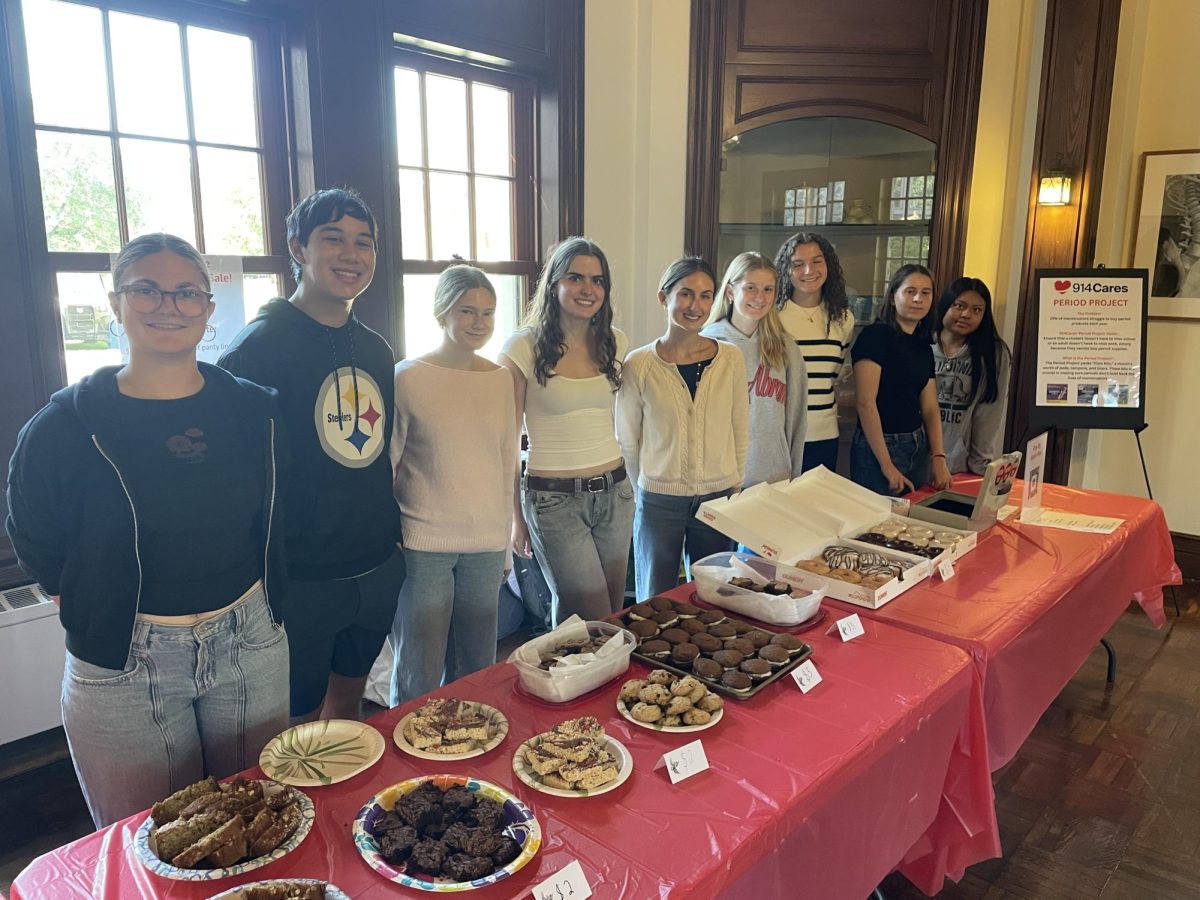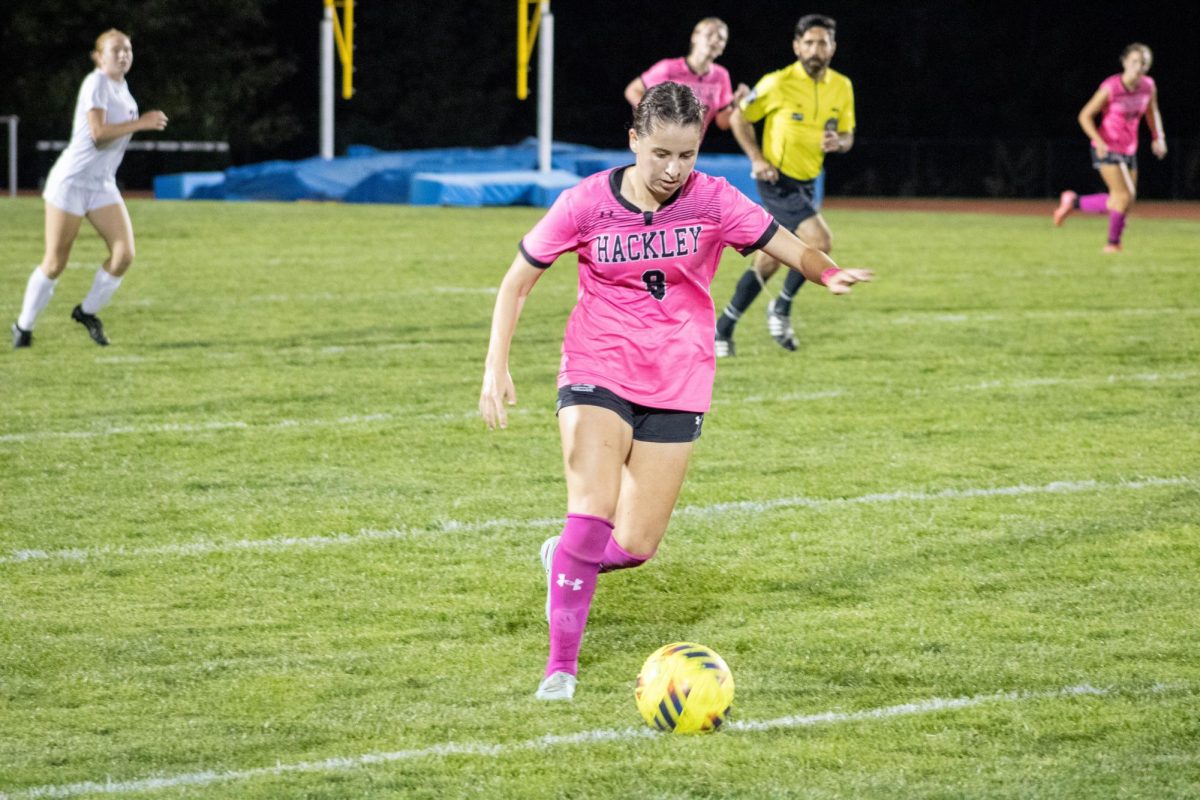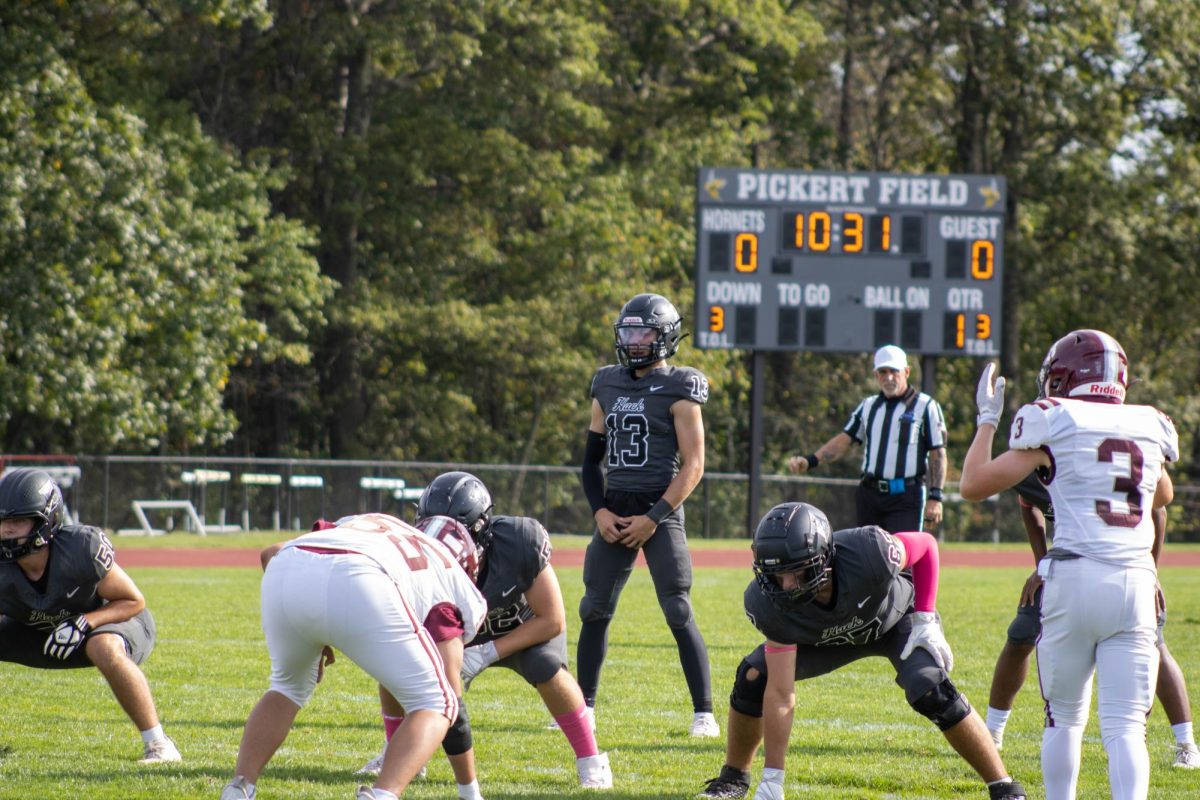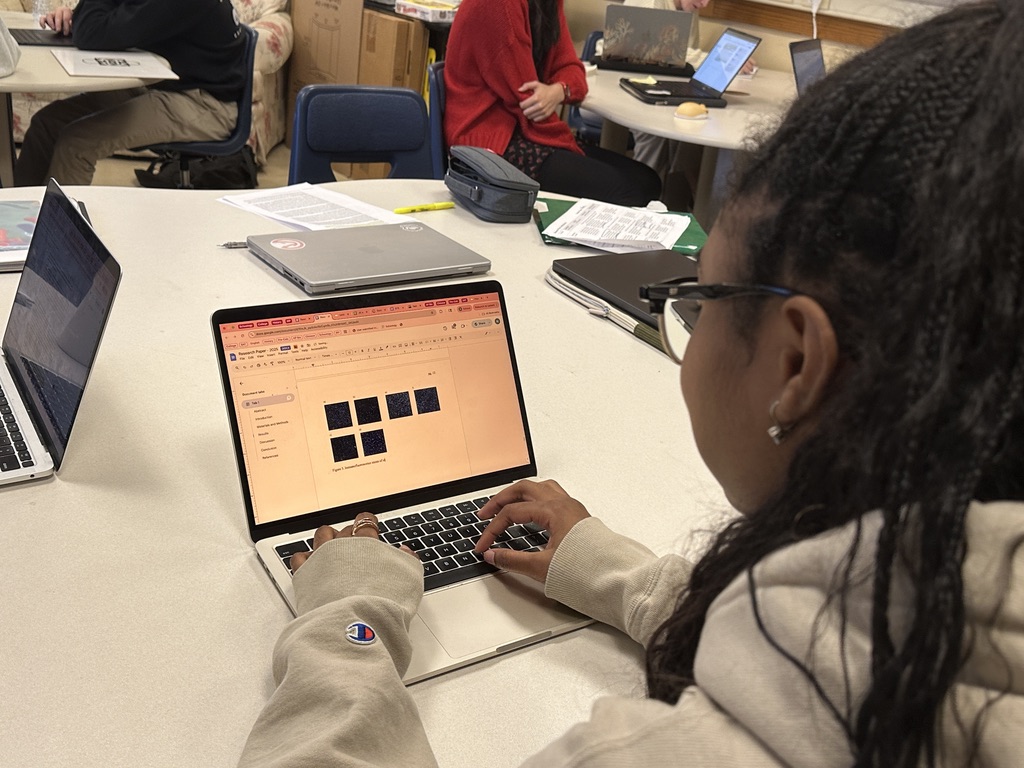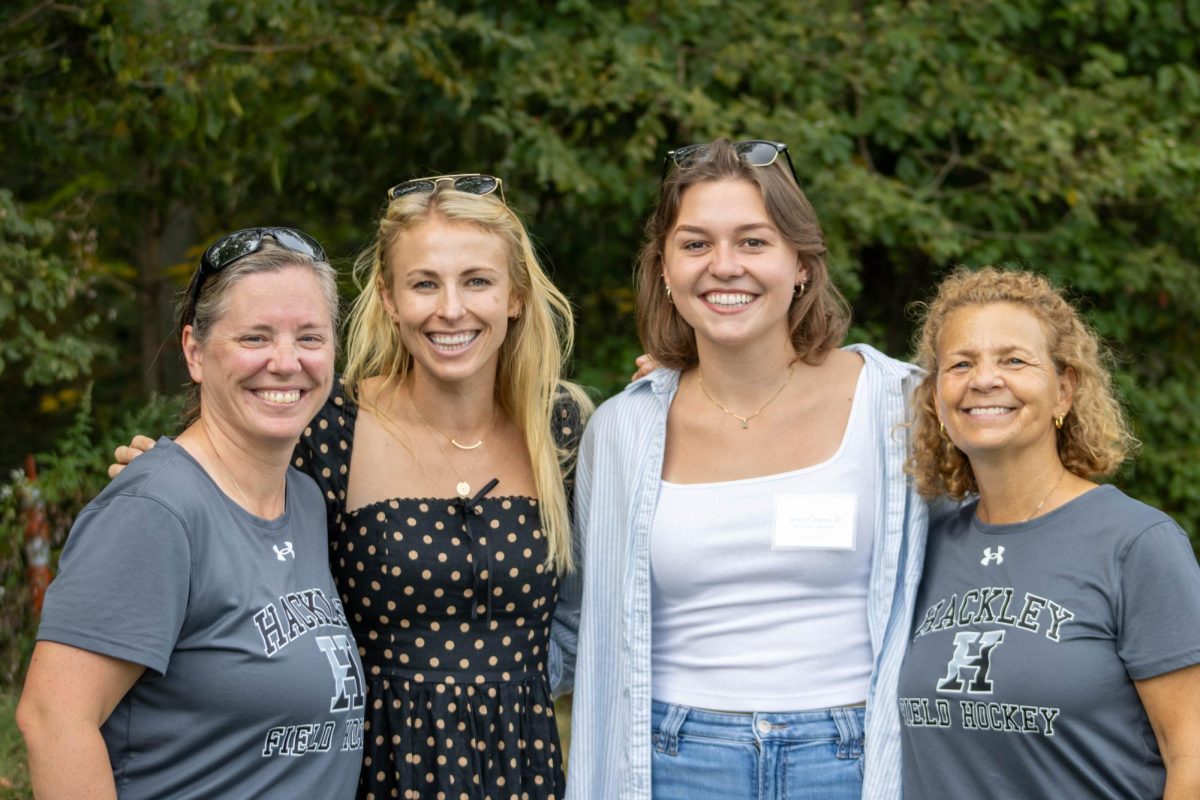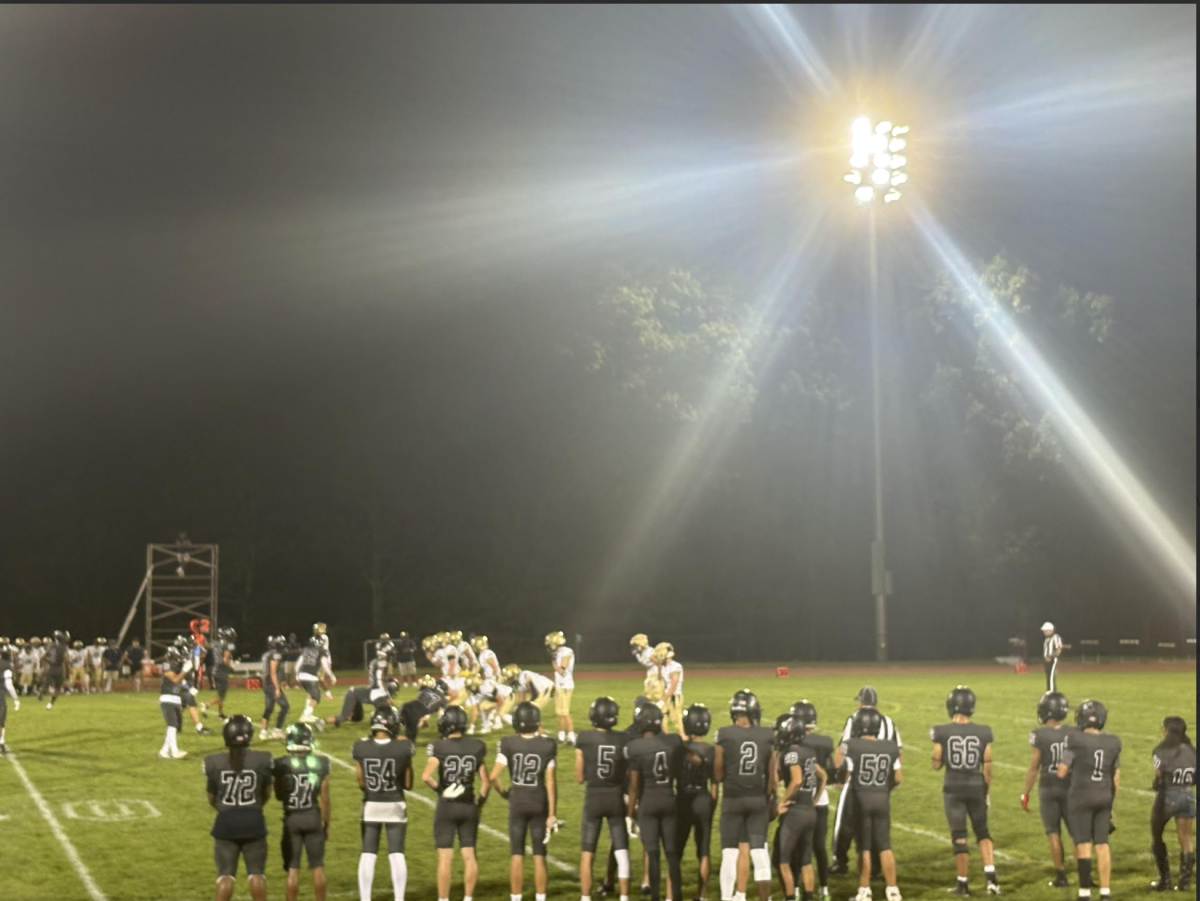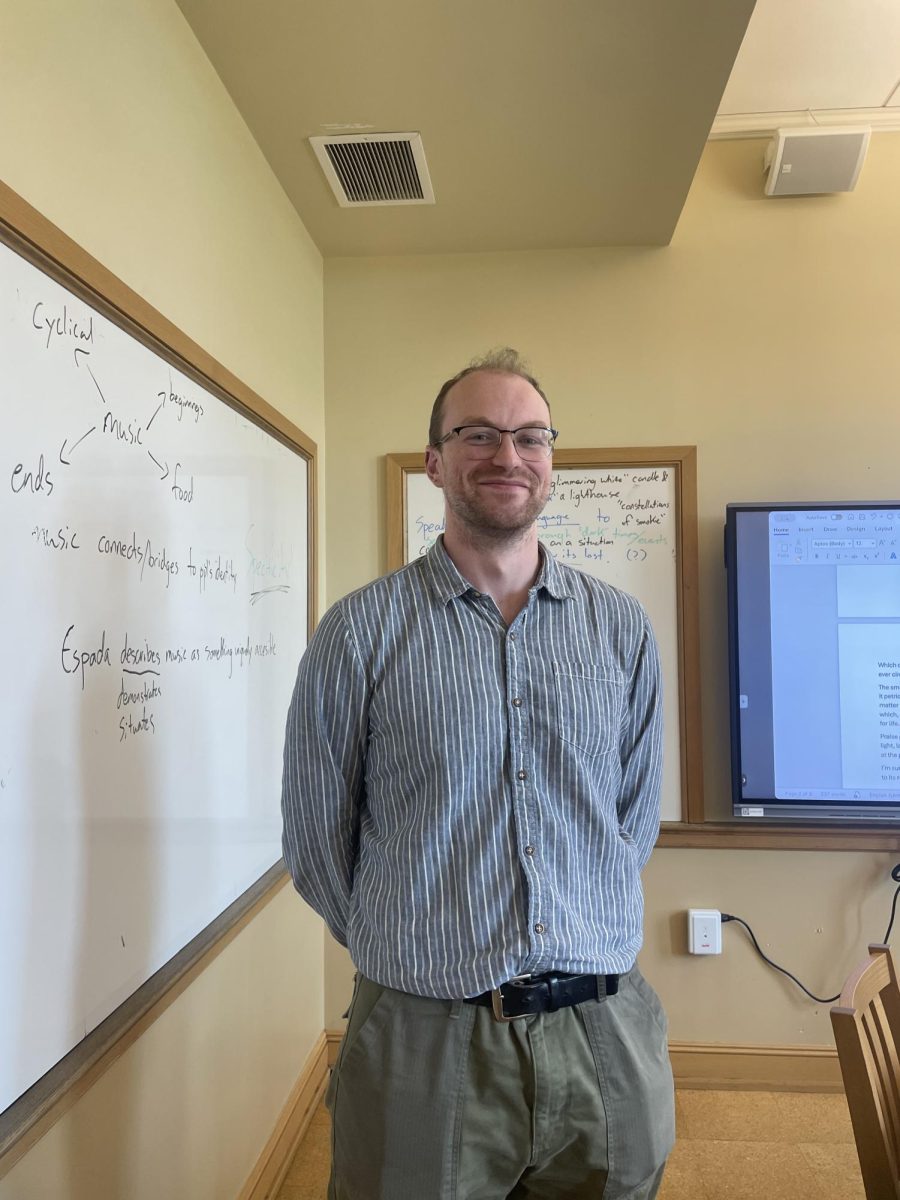As the seniors explore their new responsibilities and privileges being the oldest in the school, new freshmen also enter the same environment looking for seniors’ advice to help them navigate the Upper School.
Looking back on past mistakes, essential study methods, and ways to navigate the Upper School, seniors’ wisdom is often sought after by the new freshmen on how to get a head start on succeeding in the Upper School.
Study Methods
Over time in the Upper School, students hone their study methods for each subject and develop ones that work the most efficiently for them.
Just doing your homework to study sounds basic. However, senior Isabella Barriera says it’s one of the most important things you can do to develop a solid understanding of all topics and show teachers your participation in every subject.
For math classes especially, assessments make up the majority of, if not the whole grade. To some, this is unfair and biased towards better test takers.
“At first, I was frustrated with this rule and felt it never was able to represent my full potential in math. However, doing the homework diligently, even when the teacher never checked, helped me feel more comfortable and confident in my assessments,” said Bella.
“Even if you don’t have a quiz or test coming up, always act as if you have one coming up to maximize your understanding of the material,” said senior Mika Nuzum.
Another strategy Bella uses heavily when studying for humanities-focused classes is what she calls simulating the teacher. “Explain to your friends and family the topics that you are learning to prove to yourself that you know it,” Bella said.
Creating an organized system early in high school is also key to succeeding in both classwork and assessments. “Take diligent notes, ask questions, organize your teachers’ schedules to be accessible, and do all of this early during your freshman and sophomore years to set yourself up for success in junior and senior years,” said senior Phoebe Dungca.
Phoebe also has specific study methods for science and history classes. “Practice, practice, practice. Re-do homework. For history and science assessments, Quizlet is really helpful,” she said.
“For STEM classes I recommend keeping your notes and homework organized and marking any questions you have to ask during class time,” said senior Mika Nuzum. Mika also recommends visiting Math Lab during lunch at least once a week to surround yourself with a math-focused environment to ask questions and work with peers.
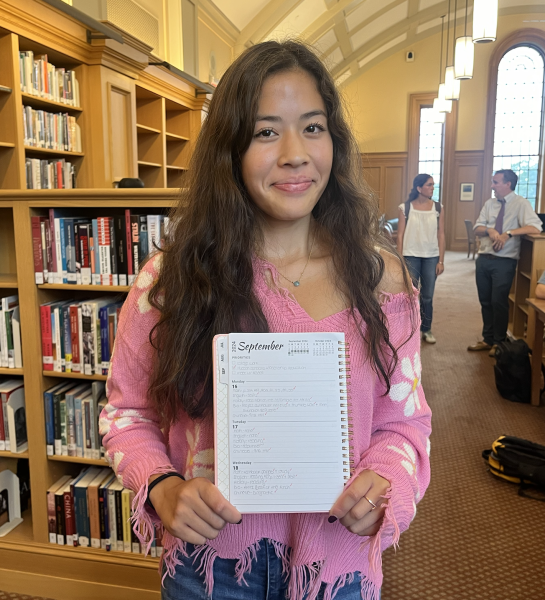
Senior Bella Barriera shows her detailed planner that she uses every year to organize her assignments, assessments, and meetings. She says it’s the key to keeping on top of all of her tasks during the school year. Whether it’s CVS, Target, or Amazon, she recommends buying a planner and getting into the habit of using it every day.
Social
Along with the workload, high school is known to be a hard environment to navigate socially. With new sports teams, and the introduction of hundreds of clubs, finding your way through the social paths in high school can be difficult.
Bella recommends trying everything, “Be open to meeting new people and join as many clubs and sports teams as you can. For me, I’ve made a lot of strong friendships through tennis and squash teams with both under and upperclassmen which has allowed me to socialize with people from all grades,” she said.
As friend groups shift around throughout high school, Phoebe says, “Get to know your grade and be open-minded in your classes to get to know people you’ve never met.”
Senior Linda Ohia-Enyia agrees and thinks being your true self around people is key. “Put yourself out there and don’t be afraid to speak to people. You’re going to find your people at the end of the day so keep being you,” said Linda.
Hackley is a very rigorous school and can often be overwhelming balancing homework, assessments, and extracurriculars. Mika stresses the importance of “a good balance between working hard and having fun during the week and on weekends.” She emphasized giving yourself breaks and prioritizing your mental and physical well-being over everything. “The loads of work can be daunting at times but if you organize your time and give yourself space to take breaks and relax you can thrive,” Mika said.
Along with watching out for yourself and keeping a healthy balance of work and fun, Mika also believes that your community is what can help you find a good balance. “Surround yourself with people who support you but also push you in all aspects of life,” she said.
Choosing Your Classes
Looking ahead to the spring, course selection can be a source of stress for underclassmen. The variety of classes and the hundreds of pathways that a Hackley student is faced with can often overwhelm freshmen specifically. Which classes do I take? Who are the best teachers? How do I make sure I have enough course rigor?
“The best way to do well in the classes you take is to take ones that interest you,” said senior Tyler Mook. Mika agrees and suggests that students “find a good balance between pursuing your passions but also ensuring you’re not sacrificing your grades because of it.”
One of the best resources to reference is Hackley’s handbook to explore the details and texts that each class will dive into. “Course selection can often be a stressful process, but going through the course guide can help bring clarity to the process and even get you excited about the courses that are offered,” said Mika.
Advisors are also an essential resource to use during course selection. They have your best interests in mind and will guide you through understanding your own passions while also keeping in mind your graduation requirements. For those who are not interested in arts, seniors often recommend taking an art class during freshman or sophomore year to fulfill the requirement and give room for different courses later in high school. For those interested in history, seniors advise exploring and taking advantage of the plethora of history courses that become available during junior and senior years.
Although it’s important to dive deeper into your certain interests, senior Mika Nuzum reminds students of some important things to keep in mind when you think about specializing your course load. “It’s good to appear well-rounded so keep an open mind and explore because you never know what you will end up enjoying,” she said.
The last piece of advice that seniors emphasize when talking about course selection is to make use of the wisdom of department heads to ensure you are taking courses that challenge you but also don’t overwhelm you.
“Talking to Ms. Kaplan to choose my sophomore year math course was very helpful in identifying the best level course for me. I definitely recommend setting up a meeting with her,” said Francesca.
Making use of department chairs for all subjects through email or an in person meeting is one of the biggest recommendations that seniors emphasized.
Concluding Thoughts
Altogether, high school is full of ups and downs, new experiences, and some of the best moments you will ever experience throughout your lifetime. Although advice can help you get a jump start on how to navigate the new environment, it’s important to embrace the new setting, the difficulties, the new people, and the uncertainty that comes with it.
“You can get really consumed by stressing about the future but it’s really important to enjoy your time and experiences so you don’t miss out on truly living in your high school experience,” said Bella.
Linda agrees, “Just know it all works at the end of the day regardless of the position you’re in now,” said Linda.
Mika adds, “As we all know, high school is a big factor that can contribute to your future, but it is not the end all be all and your results do not define you as a person,” she said. Although it might be hard at times, she recommends “have a positive mindset and try not to dwell on any negative results.”
As the seniors look back on their journeys through the upper school, their perspectives, mindsets, and learnings have become the new handbook for freshmen to navigate their way through this new environment. Seniors sharing their wisdom from their own experiences to freshmen is a testament to the strength and power of our community.

